Discover KickBack - The Global Anticorruption Podcast
KickBack - The Global Anticorruption Podcast

KickBack - The Global Anticorruption Podcast
Author: KickBack
Subscribed: 91Played: 2,707Subscribe
Share
© All rights reserved
Description
This podcast series features in-depth interviews with a wide range of corruption experts, on questions such as:
What have we learned from 20+ years of (anti)corruption research?
Why and how does power corrupt?
Which theories help to make sense of corruption?
What can we do to manage corruption?
How to recovery stolen assets?
What have we learned from 20+ years of (anti)corruption research?
Why and how does power corrupt?
Which theories help to make sense of corruption?
What can we do to manage corruption?
How to recovery stolen assets?
141 Episodes
Reverse
Liz David-Barrett speaks with human rights and international law expert Naomi Roht-Arriaza, about the intersection of grand corruption and human rights. Naomi shares how her decades of work on transitional justice led her to confront the blocking of post-conflict progress by state capture, often involving alliances between organized crime, political elites, and economic interests. The discussion examines how corruption violates a broad range of human rights, why giving victims legal standing in corruption cases matters, and what reparations beyond financial compensation might look like. Naomi also addresses the inadequacy of current international legal frameworks that assume states will combat their own corruption, and calls for breaking down silos between human rights, anti-corruption, and environmental advocates to tackle these interconnected challenges.
Links to Naomi’s research:
Fighting Grand Corruption: Transnational and Human Rights Approaches in Latin America and Beyond - https://www.cambridge.org/core/books/fighting-grand-corruption/4B738654046BEA6F0F2FF336BEA12112
The right to be free of corruption: A new frontier in anti-corruption approaches through national courts - https://cdn.sanity.io/files/1f1lcoov/production/863973678d954b32539d37b070dbf556776b8e67.pdf
Why do voters sometimes support corrupt politicians? And can putting forward women candidates help parties recover from corruption scandals? In this episode, regular host Liz David-Barrett speaks with Emily Elia about her experimental research on voter behaviour and corruption in Latin American democracies. The conversation delves into the "feminization strategy", examining the level to which deploying women candidates after corruption scandals actually works to restore party credibility. The conversation also explores emerging questions about who becomes an anti-corruption fighter in politics and whether voters can tell genuine reformers from those just paying lip service to clean government.
Read more about Emily's research into gender stereotypes and electoral accountability here: https://link.springer.com/article/10.1007/s11109-024-09943-9
And on the role of ideological proximity to the opposition in "corruption voting" here: https://www.sciencedirect.com/science/article/abs/pii/S0261379422001019?via%3Dihub
Hungary, once seen as a democratic success story is now widely recognized as one of the EU's most corrupt member states. Regular KB host Liz David-Barrett sits down with József Péter Martin and Áron Hajnal to examine how Viktor Orbán built a system of state capture, and why the EU struggled to respond. They discuss their research evaluating the effectiveness of EU conditionality measures, the challenges of tackling corruption when it's built into the regime itself, and what might happen in Hungary's crucial April 2026 elections.
Find Áron and József’s article here: https://www.tandfonline.com/doi/full/10.1080/10999922.2025.2554409?scroll=top&needAccess=true#d1e186
How do multinational consulting firms enable state capture? In this episode, regular KB host Liz David-Barrett chats with Devi Pillay about her research on the role of McKinsey & Co.'s involvement in the capture of South Africa under President Zuma. Drawing on evidence from the Zondo Commission, Devi describes how consulting firms worked with politically connected local partners to extract billions in fees from state-owned enterprises, while providing misleading advice that facilitated further corruption. Liz and Devi also discuss the vital role of investigative journalists and whistleblowers in exposing these arrangements, the devastating impact on South Africa's infrastructure and economy, and the mixed accountability outcomes for the firms involved.
Find Devi Pillay’s working paper for GI ACE here: https://giace.org/resources/consulting-firms-corruption-and-state-capture/
Find similar themes on South Africa's state capture in episode 129.
This research is part of the Governance & Integrity Anti-Corruption Evidence (GI ACE) programme which generates actionable evidence that policymakers, practitioners and advocates can use to design and implement more effective anti-corruption initiatives. This GI ACE project is funded by UK International Development. The views expressed in this report do not necessarily reflect the UK Government’s official policies.
Join regular KB host Liz David-Barrett in conversation with Nicola Bonucci, a veteran public international lawyer who has been involved in the OECD Anti-Bribery Convention since its creation. This episode traces the convention's journey from its 1993 origins to current challenges, exploring how peer review mechanisms have transformed international business practices and examining the implications of recent changes in US enforcement policy. Essential listening for anyone interested in international law, corporate compliance, and the ongoing fight against global corruption.
This Kickback episode features Mo Ibrahim, who joins Liz David-Barrett to share his transition from entrepreneurship to philanthropy, by establishing the Mo Ibrahim Foundation to promote good governance and leadership in Africa.
Mo shares the primary mechanisms to achieving the Foundations goals, including the Ibrahim Index of African Governance, and the Africa leadership prize, which aims to highlight positive role models and support them post-office, asserting the importance of African-led initiatives and self-reliance in the face of declining foreign aid and internal conflicts.
Learn more about the Ibrahim Index of African Governance (IIAG) here: https://mo.ibrahim.foundation/our-research/iiag
For this episode, regular host Robert Barrington is joined by two anticorruption experts from Australia. Nicole Rose is the Deputy Commissioner at The National Anti-Corruption Commission (NACC), and AJ Brown is a Professor of Public Policy and Law at Griffith University and the Chair of Transparency International’s (TI) Australian chapter.
Some of the main themes discussed in the episode include:
- The extent and nature of corruption in Australia
- The role of the newly-established NACC in addressing “grey corruption"
- Effective approaches to anticorruption measures
- The utility of the Corruption Perceptions Index (CPI)
- Uniquely Australian concepts of corruption
- Top priorities in strengthening the anticorruption system.
For more on corruption in liberal democracies, check out the previous episode: 134. Oguzhan Dincer & Michael Johnston on Corruption in America.
Find out more about AJ’s work here: https://experts.griffith.edu.au/18540-a-j-brown
And the NACC here: https://www.nacc.gov.au/
This episode features Oz Dincer and Michael Johnston, who join regular Kickback host Robert Barrington to discuss their new book 'Corruption in America', which explores corruption in various policy areas across all fifty states.
Dincer O, Johnston M. Corruption in America: A Fifty-Ring Circus. Cambridge University Press; 2025.
Is Anti-Corruption work an inclusive movement deeply connected to its grassroots origins, or a self-serving, hierarchical entity that partially manufactures the problems for which it offers solutions?
To critically examine this dichotomy, and the UK’s anticorruption ecosystem more broadly, Kickback host Robert Barrington is joined by Rebecca Dobson-Phillips, assistant Professor in Politics at the Centre for the Study of Corruption, Alex Jacobs, director of the Joffe Trust, and Helen Taylor, a senior legal researcher at spotlight on corruption.
Anti-Corruption in a Discordant World: Contestation, Abuse and Innovation is edited by David Jackson, Inge Amunsen and Aled Williams (Chr. Michelsen Institute) and will be published by Routledge later this year. The book gathers empirical evidence on the many paths anti-corruption has taken in a discordant world and ponders how this context has distorted, deformed and enriched anti-corruption practice. It will include a chapter by Rebecca Dobson Phillips on "Corruption and Anti-corruption in Post-Brexit Britain".
This research is part of the Governance & Integrity Anti-Corruption Evidence (GI ACE) programme which generates actionable evidence that policymakers, practitioners and advocates can use to design and implement more effective anti-corruption initiatives. This GI ACE project is funded by UK International Development. The views expressed in this report do not necessarily reflect the UK Government’s official policies.
This episode features Nishan de Mel, the Executive Director of Verite Research, to discuss their development of Sri Lanka’s innovative governance-linked bond, which seeks to break the country’s vicious cycle of poor governance and financial instability.
Learn more about:
Verite Research - https://www.veriteresearch.org
The Civil Society Governance Diagnostic Report, mentioned by Nishan - https://www.tisrilanka.org/wp-content/uploads/2023/09/GDA_REPORT_2023.pdf
And the IMF’s Governance Diagnostic Assessment - https://www.treasury.gov.lk/news/article/221
For more on issues of corruption in Sri Lanka, check out Kickback episode 106, with Sankhitha Gunaratne.
This episode of Kickback features Dr. Mario Hidalgo, from the Transparency and Anti-Corruption Laboratory at UTE university in Ecuador, to shed light on Ecuador's transition from the "Island of Peace" to a country facing widespread organised crime and violence, highlighting the significantly enabling role of corruption. The conversation also touches upon Ecuador's institutional unpreparedness, political polarisation, and the weaponization of corruption during the recent presidential elections.
Learn more about Mario's important work here: https://ute.edu.ec/laboratorio-de-transparencia-y-anticorrupcion/
For this episode, regular host Liz David-Barrett is joined by Dr Daniel Paget, an assistant professor in politics at the University of Sussex, to unpack the nuances of electoral authoritarianism in Tanzania, the aspirations of a key opposition movement, and the power of alternative theoretical frameworks for understanding the fight against domination and for democracy.
Find Daniel's paper 'The Anti-Authoritarian Populisms: Ideologies of Democratic Struggle in Tanzania, Zimbabwe and Worldwide' (2024) here: https://www.danpaget.com/recent-publication
and ‘A people power philosophy: republican ideology in opposition in Tanzania.’ (2023) here: https://www-tandfonline-com.sussex.idm.oclc.org/doi/full/10.1080/13510347.2022.2150759
DISCLAIMER: This episode was recorded several days before the arrest of Tundu Lissu.
For this episode Dr Marianne Camerer, a Senior Lecturer at the University of Cape Town’s Nelson Mandela School of Public Governance, and Devi Pillay, a research fellow with the GI-ACE programme, join regular KB host Liz David-Barrett to discuss the experience of state capture in South Africa, under the presidency of Jacob Zuma.
Check out the following resources to learn more about the issues discussed in this episode:
The Open Secrets website which houses the Civil Society Working Group Against State Capture
https://www.opensecrets.org.za/civil-society-working-group-on-state-capture/
The State Capture Commission website
https://www.statecapture.org.za/
The Public Protector’s 2016 report
https://www.sahistory.org.za/archive/state-capture-report-public-protector-14-october-2016
A short summary written by Devi of the Commission and its findings https://pari.org.za/summary-the-state-capture-commission
And the book "State Capture in South Africa: How and why it happened", edited by Mbongiseni Buthelezi and Peter Vale
https://pari.org.za/new-book-state-capture-in-south-africa-how-and-why-it-happened/
This research is part of the Governance & Integrity Anti-Corruption Evidence (GI ACE) programme which generates actionable evidence that policymakers, practitioners and advocates can use to design and implement more effective anti-corruption initiatives. This GI ACE project is funded by UK International Development. The views expressed in this report do not necessarily reflect the UK Government’s official policies.
This episode features a discussion between regular KB host Liz David-Barrett, and Kevin E. Davis, the Beller Family Professor of Business Law at NYU School of Law. Their conversation centres on the international regulation of bribery and corruption, specifically focusing on the U.S. Foreign Corrupt Practices Act (FCPA), following President Trump's recent suspension of its enforcement. The episode explores the potential implications for U.S. companies, foreign entities, and international anti-corruption efforts.
Read Kevin's recent blog post on this issue here: https://wp.nyu.edu/compliance_enforcement/2025/02/21/implications-of-pausing-fcpa-enforcement/
And his paper on international regulation here: https://papers.ssrn.com/sol3/papers.cfm?abstract_id=4506000
For this episode of KickBack, we are joined by Gary Kalman, who is the Executive Director of Transparency International United States and Blair Glencorse, the Founder and co-CEO of Accountability Lab. They join Liz Dávid-Barrett to dissect the Trump administration’s drastic cuts to US aid and its implications for anti-corruption efforts worldwide.
https://us.transparency.org/
https://accountabilitylab.org/
Learn more about Accountability Lab and Development Gateway's Strategic Partnerships system here: https://accountlab.typeform.com/merge?typeform-source=www.linkedin.com
This episode dives into the shadowy world of illicit financial networks with Dr Dan Haberly, whose research with the GI ACE program addresses significant knowledge gaps around the opaque structures of the global economy. Dan introduces the Regulation of Illicit Financial Flows (RIFF) dataset, which aims to track regulatory progress in financial transparency. The discussion examines the geographical reorganisation and persistence of illicit networks and the role of various jurisdictions in facilitating illicit finance.
Learn more about Dan and GI ACE's ground-breaking research here:
https://giace.org/resources/from-secrecy-to-scrutiny-a-new-map-of-illicit-global-financial-networks-and-regulation/
https://giace.org/resources/the-regulation-of-illicit-financial-flows-riff-dataset/
This research is part of the Governance & Integrity Anti-Corruption Evidence (GI ACE) programme which generates actionable evidence that policymakers, practitioners and advocates can use to design and implement more effective anti-corruption initiatives. This GI ACE project is funded by UK International Development. The views expressed in this report do not necessarily reflect the UK Government’s official policies.
For this episode we are joined by John Heathershaw, Tena Prelec and Tom Mayne to discuss their new book Indulging Kleptocracy: British Service Providers, Postcommunist Elites, and the Enabling of Corruption. This conversation focuses on professional enablers that provide services to help kleptocrats to launder their reputations, move their money, and gain access to political influence. John Tena and Tom argue that professional enabling is a systemic problem that is facilitated by the concentration of financial and legal expertise in the private sector, and the willingness of professionals to turn a blind eye to the origins of their clients' wealth. They discuss the challenges of regulating professional enabling and offer advice for researchers working in this area.
The episode discusses the new book Indulging Kleptocracy, which partly draws on research funded by the GI ACE programme. GI ACE generates actionable evidence that policymakers, practitioners and advocates can use to design and implement more effective anti-corruption initiatives. This project was funded by UK Aid from the UK government. The views expressed in the book do not necessarily reflect the UK Government’s official policies.
Find John Tena and Tom's new book here: https://academic.oup.com/book/58173
Similar themes relating to kleptocracy can be found in Kickback episode 66, with Casey Michel, and episode 111 with Tom Burgis.
This research is part of the Governance & Integrity Anti-Corruption Evidence (GI ACE) programme which generates actionable evidence that policymakers, practitioners and advocates can use to design and implement more effective anti-corruption initiatives. This GI ACE project is funded by UK International Development. The views expressed in this report do not necessarily reflect the UK Government’s official policies.
Leading anticorruption expert and former Transparency International Chair, Dr. Delia Ferreira Rubio joins host Liz David Barrett to discuss the evolution of the global anti-corruption movement. Drawing on 40+ years of experience, Delia explores how civil society's role has evolved beyond advocacy to direct action, examines the increasing sophistication of corruption in the digital age, and highlights the importance of cross-sector collaboration in fighting corruption.
This week Liz David-Barrett is joined by expert researchers Monika Bauhr and Marcia Grimes from the Quality of Government Institute, where they conduct and promote research on the causes, consequences and nature of Good Governance.
This episode addresses the multifaceted nature of corruption and the challenges of promoting accountability in democratic systems. Monika and Marcia cover a range of topics, including the implications of transparency as an accountability mechanism, the role of elites in maintaining the status quo, and the relationship between women's representation and corruption reduction.
The discussion acknowledges the challenges in measuring corruption, while highlighting innovative methodological approaches that challenge simplistic assumptions, to better understand the dynamics between democracy and corruption.
Learn more about the Quality of Government Institute here: https://www.gu.se/en/quality-government
And find some of Monika and Marcia's related publications here:
Bauhr, M., & Grimes, M. (2014). Indignation or Resignation: The Implications of Transparency for Societal Accountability. Governance, 27(2), 291–320. https://doi.org/10.1111/gove.12033
Bauhr, Monika and Marcia Grimes. 2021. “Democracy and Quality of Government” in Bauhr, Monika, Andreas Bågenholm, Marcia Grimes and Bo Rothstein (eds). The Oxford Handbook of Quality of Government. Oxford: Oxford University Press. https://academic.oup.com/edited-volume/33431
Bauhr, M., & Charron, N. (2018). Insider or Outsider? Grand Corruption and Electoral Accountability. Comparative Political Studies, 51(4), 415–446. https://doi.org/10.1177/001041401771025
Bauhr, M., Charron, N., & Wängnerud, L. (2024a). What candidate will fight corruption? Gender and anti-corruption stereotypes across European countries. European Political Science Review, 1–20. https://doi.org/10.1017/S1755773924000134
Bauhr, M., Charron, N., & Wängnerud, L. (2024b). Will Women’s Representation Reduce Bribery? Trends in Corruption and Public Service Delivery Across European Regions. Political Behavior. https://doi.org/10.1007/s11109-024-09925-x % year impact factor
Cornell, A., & Grimes, M. (2023). Brokering Bureaucrats: How Bureaucrats and Civil Society Facilitate Clientelism Where Parties are Weak. Comparative Political Studies, 56(6), 788-823. https://doi.org/10.1177/00104140221115171
Larsson, F., & Grimes, M. (2023). Societal Accountability and Grand Corruption: How Institutions Shape Citizens’ Efforts to Shape Institutions. Political Studies, 71(4), 1321-1346. https://doi.org/10.1177/00323217211067134
This week, Dr. Florencia Guerzovich, Independent Researcher and Evaluator, and Tom Shipley, Research Fellow for the Governance & Integrity, Anti-Corruption Evidence programme at the CSC, explore whether the corruption field has a learning problem. Against the backdrop of debates around 'success' and 'failure' in anti-corruption, they talk to Professor Robert Barrington about approaches to Monitoring, Evaluation and Learning (MEL). The discussion covers the basics of what MEL is and the role it has to play in building knowledge on anti-corruption effectiveness; the current state of practice for MEL; what can be learnt from other sectors; and what changes might be needed to shift towards more adaptable, learning-focused approaches.
Find Tom’s paper on this topic for U4 here: https://www.u4.no/publications/evaluating-anti-corruption-interventions-the-state-of-practice
And the paper discussed by Florencia on social accountability here: https://papers.ssrn.com/sol3/papers.cfm?abstract_id=4606929
This research is part of the Governance & Integrity Anti-Corruption Evidence (GI ACE) programme which generates actionable evidence that policymakers, practitioners and advocates can use to design and implement more effective anti-corruption initiatives. This GI ACE project is funded by UK International Development. The views expressed in this report do not necessarily reflect the UK Government’s official policies.


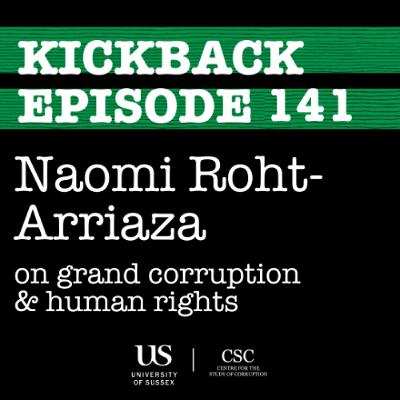
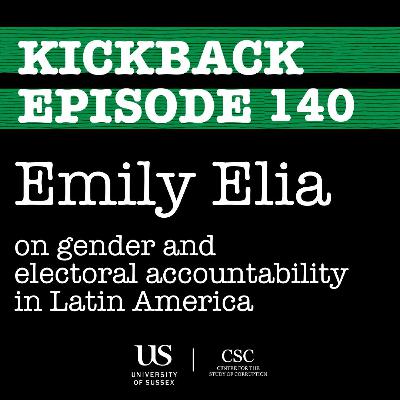
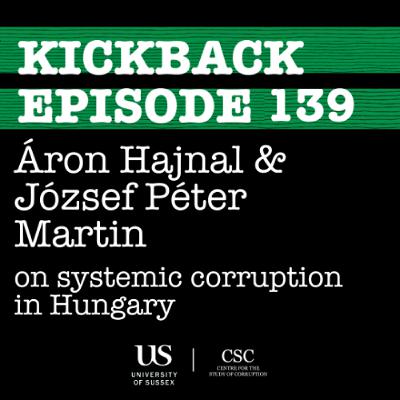
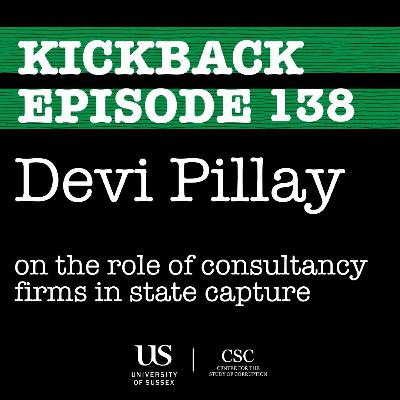
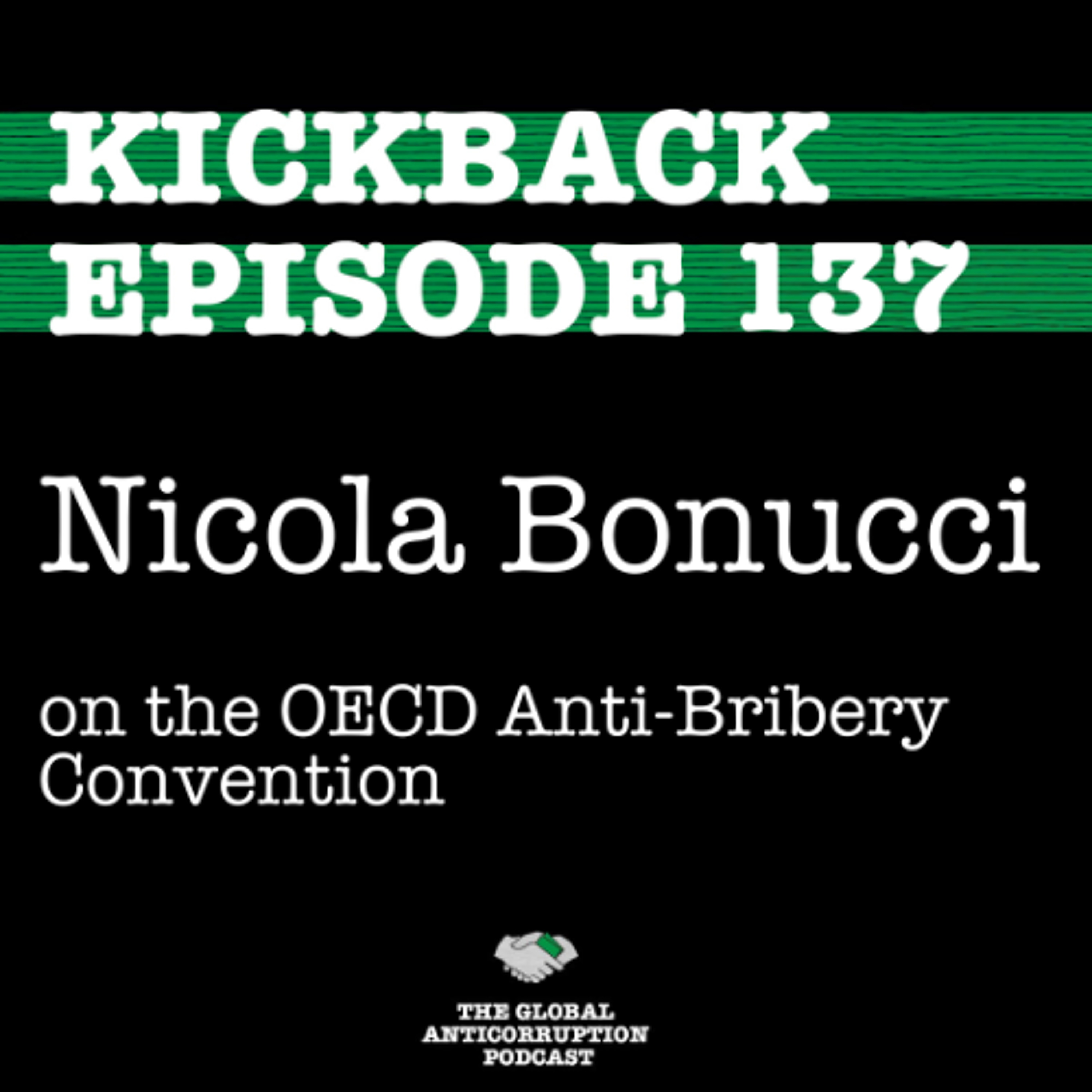
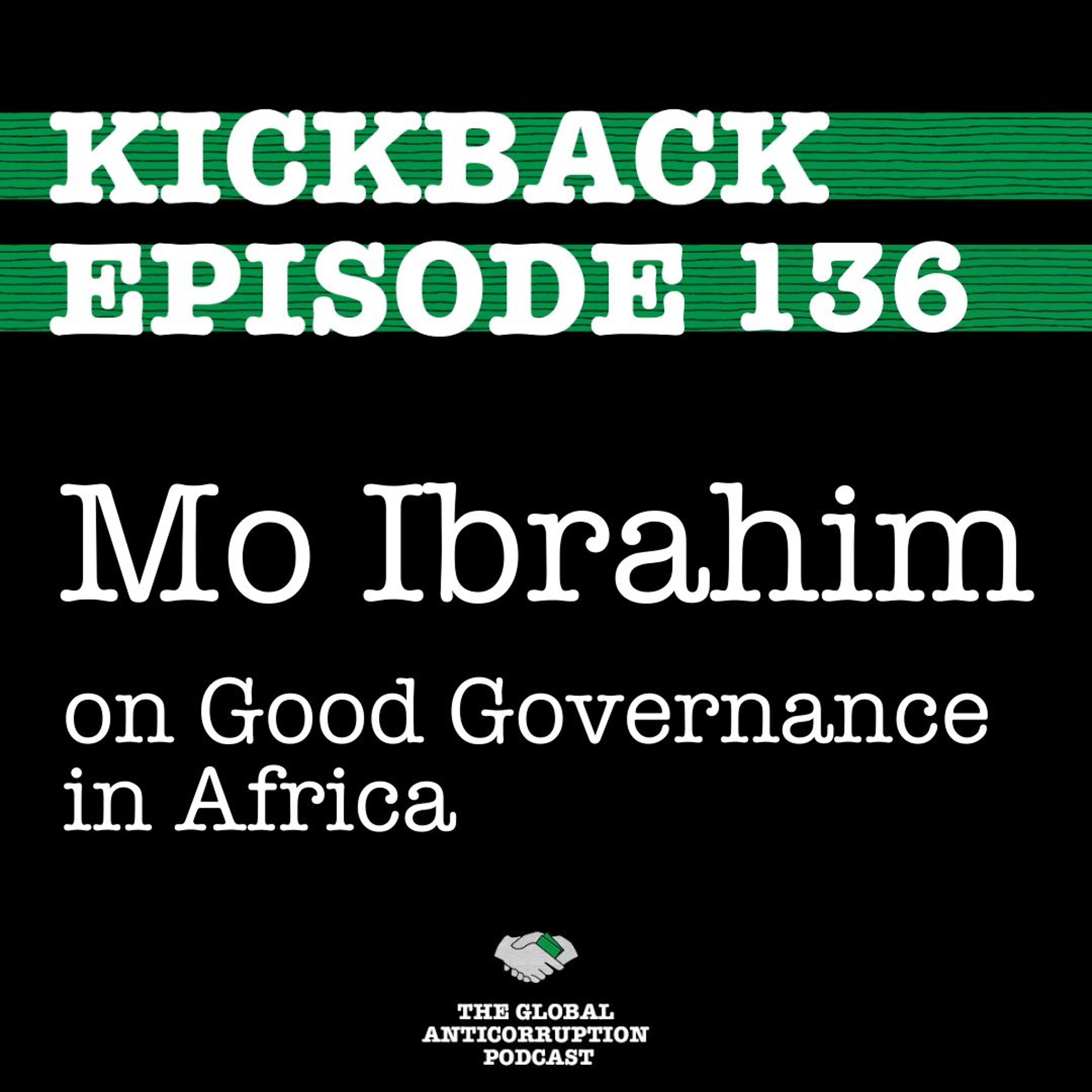
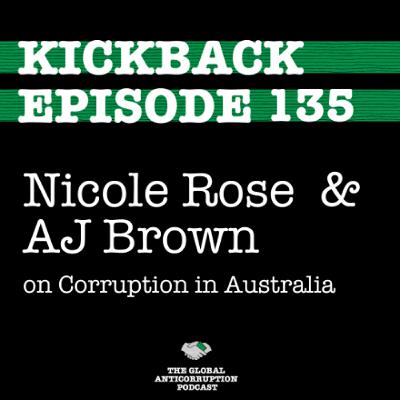


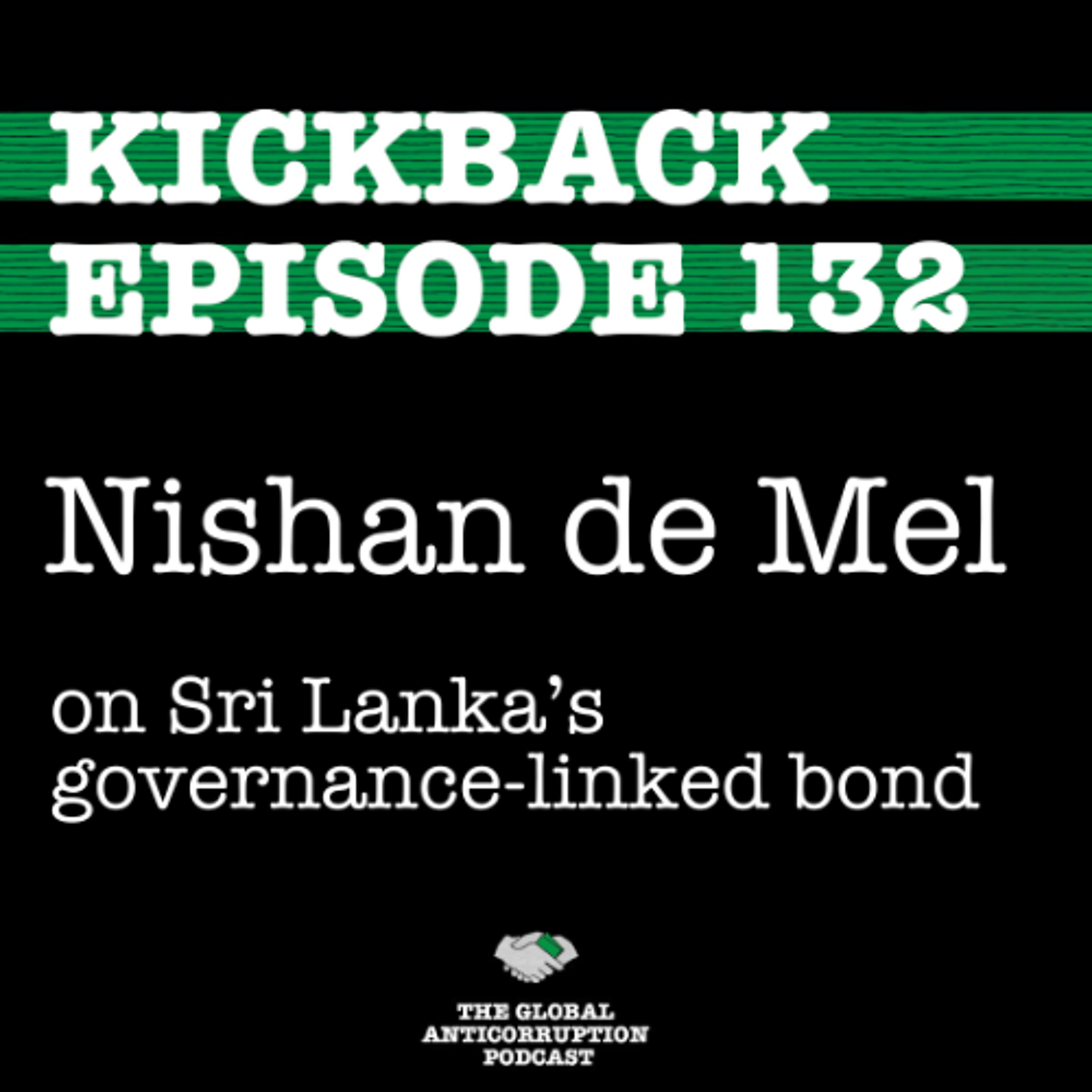



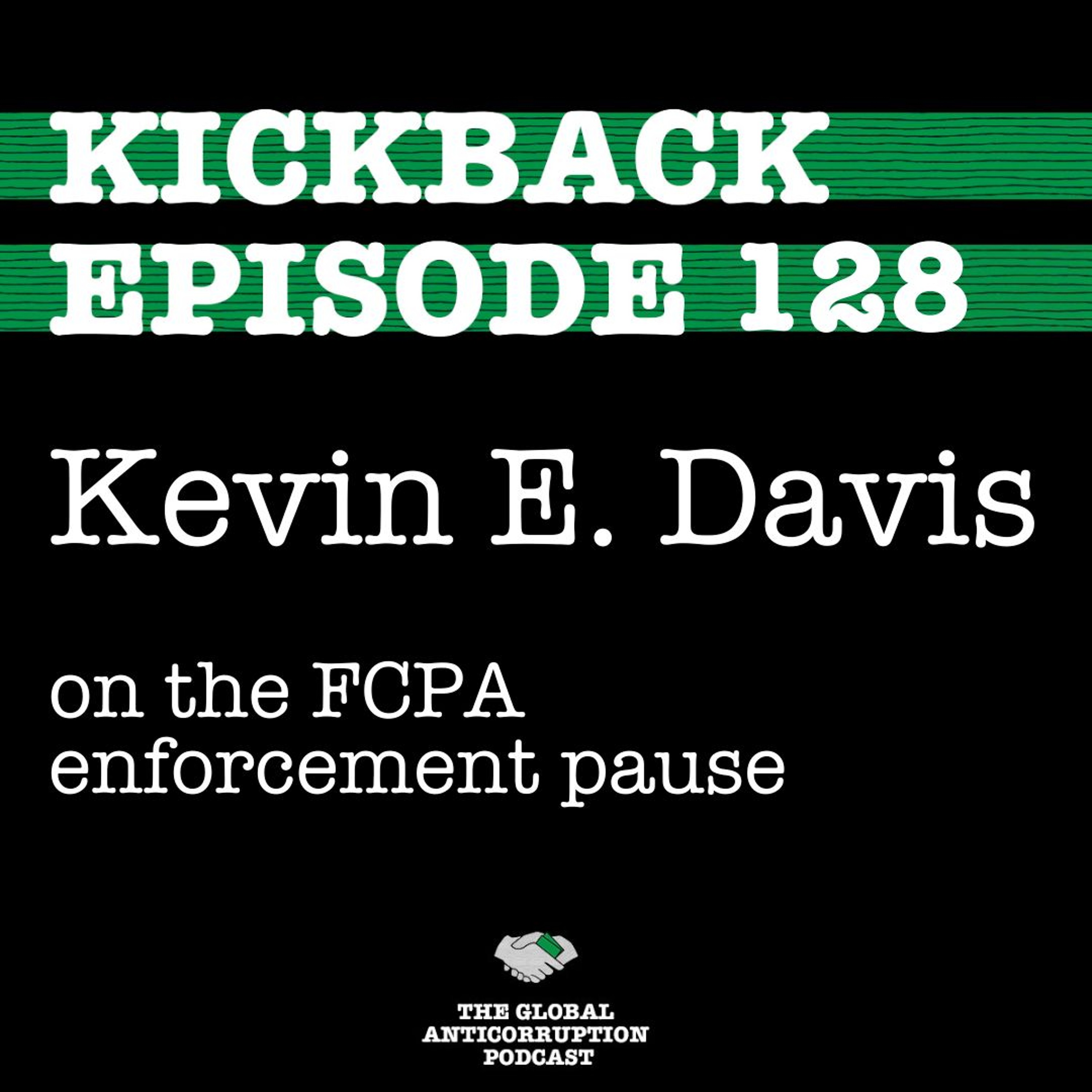

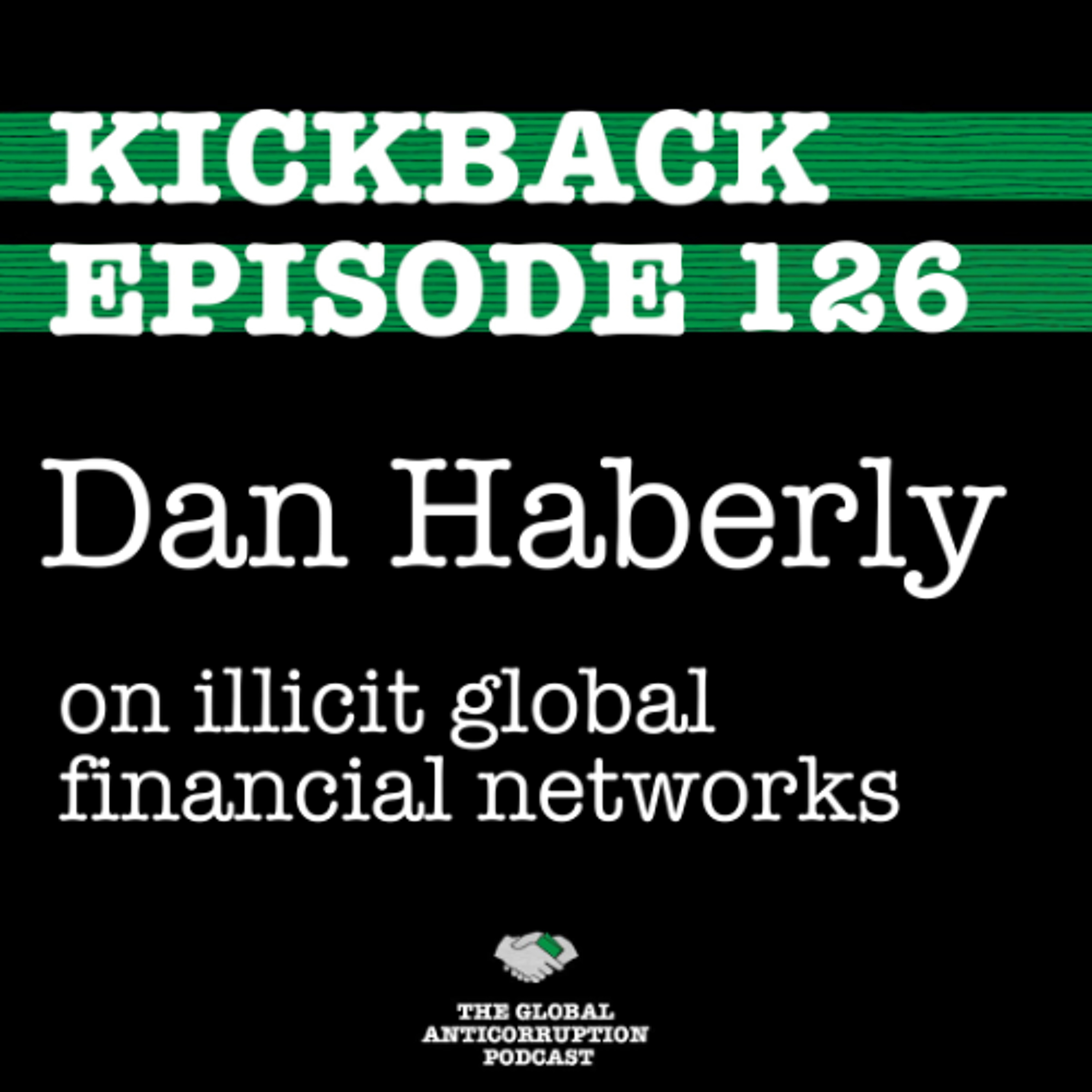
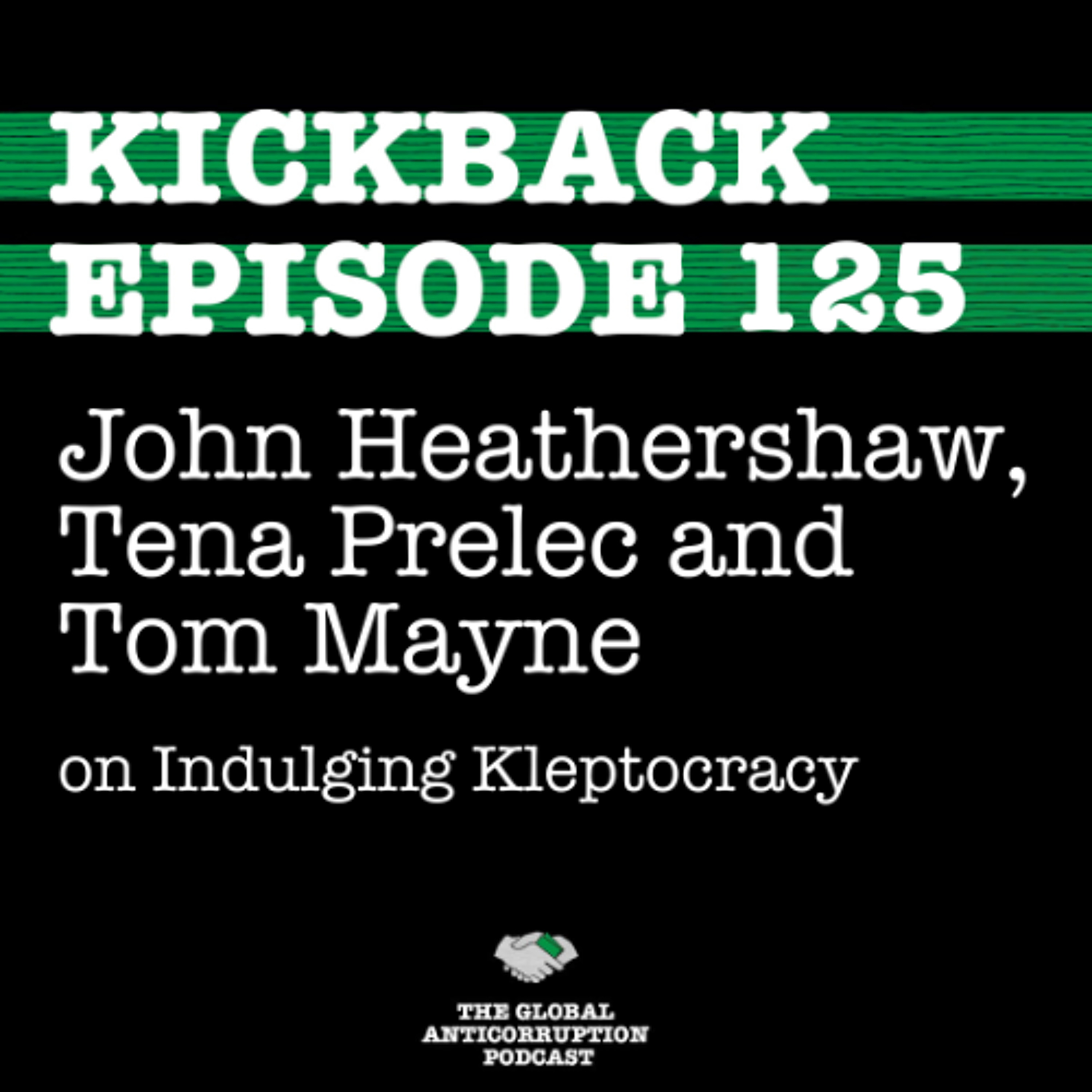


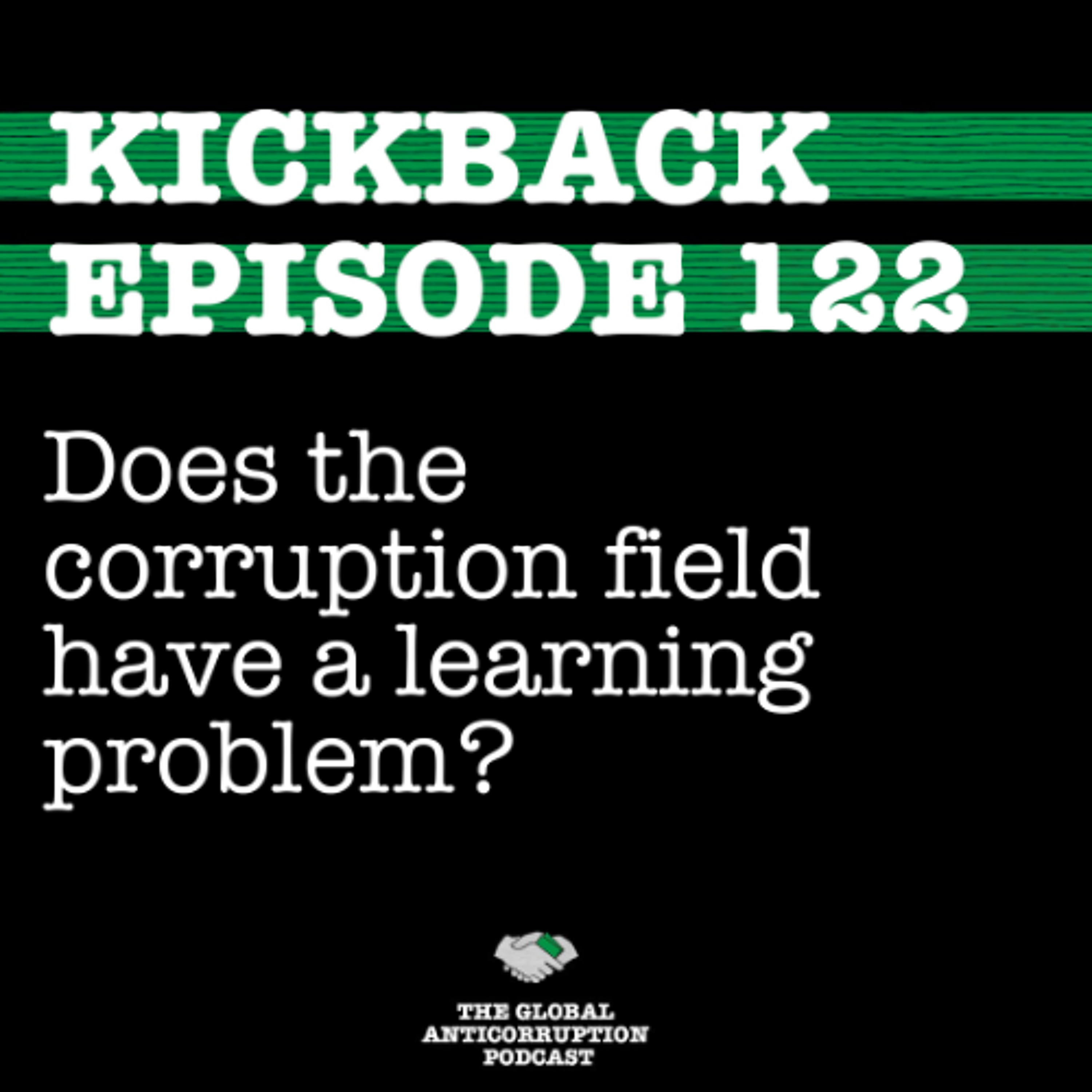



I think episode 0 is deleted or somehow have a problem. I cannot download it or listen to it while I downloaded episodes 1 and 2 successfully. BTW thank you for good content you provided!
The common way to standardise is incidents per thousand which ‘disadvantages states like Wyoming over California’. Apparently. Otherwise an interesting topic with some insight into the complexity of measuring Criminal Justice